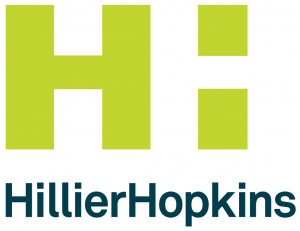The average auditor at Grant Thornton is an exceptionally well-travelled individual. Our days are highly changeable, yes we are working with our clients every day in some facet of our roles as accountants, but we are also doing so much more, and getting to stay in some great hotels as a result (think The Midland in Manchester where all the sports players stay; last year we ran into the South African cricket team whilst on this audit).
Travel
As above, the first thing to note about this job is that during busy periods we are generally out at client sites for 90% of the time. For example, since I have been with the firm I have worked at more than 30 different clients’ sites, normally around London (where I am based) but also across different parts of the South East and North West. To put that in context, at the time of writing, I am in Wimbledon working on a Clinical Commissioning Group in South West London, but soon I will be based up in Manchester for at least 3 weeks.
An average working day
On a normal working day I get in between 8:30 and 9 depending on how much work I have to do. I’ll then spend 10-20 minutes reminding myself of what I was doing yesterday and checking my emails to see if there have been any updates from clients, colleagues etc. regarding yesterdays work.
We normally work in teams of at least 3 when we are on a client, an associate (someone like me who is currently studying to become an accountant), an executive (a recently qualified accountant) and manager (a more experienced professional) at the minimum.
In general terms I spend the rest of my day working through a file or ‘cycle’ on our internal auditing software, where each cycle relates to a certain Note or group of Notes in the accounts. We break down what is stated in the accounts and the Notes into the most basic transactions that make up those figures, and then ask the client to give us evidence that those transactions actually took place, i.e. an invoice, bank statement etc. If they can do that we sign off that piece of the accounts as being true and fair. If they can’t do that we have to ask why.
At the most basic level, that’s what we do all day. As auditors, we do a lot of other stuff as well, largely focussing around providing expertise on final year accounts. While our clients only do them once a year, they are our bread and butter. For example, today I had a conversation with some others in the department regarding how certain parts of the accounts should be disclosed if the party on the other side of a transaction is a voluntary organisation.
Our expertise ensured that our clients’ accountants didn’t spend hours doing something which was in actuality just a waste of time. We are currently in the middle of NHS end of year accounts season, so our clients until June are exclusively NHS organisations (Trusts, Foundation Trusts and Clinical Commissioning Groups). I have also worked on Local Government clients, police and fire organisations and universities.
Clients
A large part of the job is being able to deal well with people as you have to be getting lots of information out of clients over a short period of time and get clarification on a lot of it in order to understand it. I regularly get sent “audit evidence” by clients that can be difficult to decipher so I will have to spend a while decoding it or asking them to give me something else I can understand. It’s very much a people-job in that respect.
It would be fair to say that it can be challenging at times, in that some client accounts may be more or less complicated and the standard of the accountants at a client can vary. This means that sometimes it can be tough for the auditor, as you may have to spend time working through their workings to ensure the figures are correct. That can be extremely challenging, but you always have great support from your team at GT in your first year. The clients I am on at the minute, however, are brilliant, so it is very variable.
Working hours
Depending on the client, I generally leave between 17:30 and 18:30 (it’s normally on the early end) so the hours are pretty good for London. When I am doing exams I will normally put in at around 2 hours studying after work, which is tough but it will be worth it once I become qualified (and get that big pay bump to boot).
Besides audit
And that’s basically it! At Grant Thornton we also get the chance to work on a range of other projects with different departments (such as writing articles for career guides) and these opportunities are great for developing different sets of skills to take forward into the rest of your career. At its core, the job is about working hard, delivering great results and passing your exams, if you can do those things everything else is sorted.






